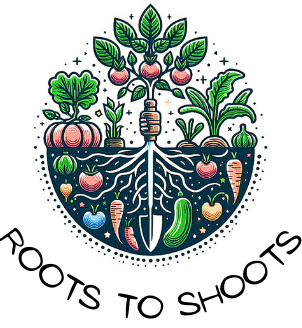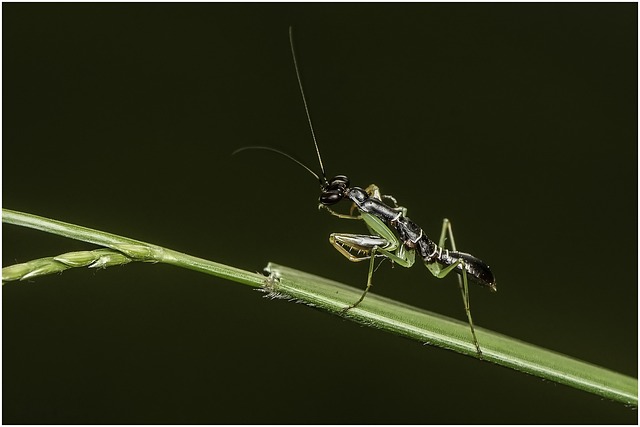Discover some organic pesticide for vegetable garden here. Learn about natural alternatives to protect your vegetables from pests without harmful chemicals. Explore safe and eco-friendly options today
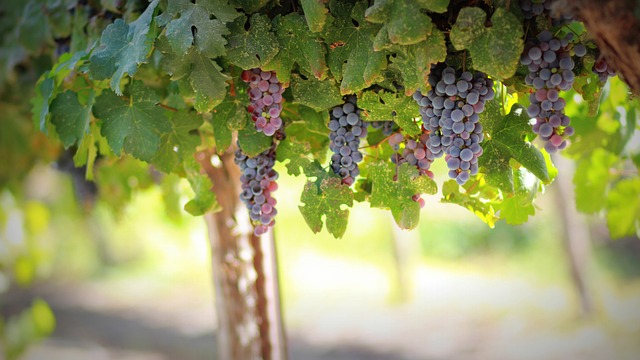
Hi I’m Mitch and In my opinion, there’s nothing quite like the satisfaction of nurturing a vegetable garden. It’s a journey I embarked on several years ago, driven by the desire to enjoy fresh, healthy produce right at my doorstep. But here’s the thing: as my garden thrived, so did the uninvited guests – pests that were all too eager to feast on my hard work. This led me down the path of organic gardening, a choice that wasn’t just about protecting my crops but also about safeguarding my health and the environment.
Choosing organic methods, especially in pest control, comes with its set of challenges and rewards. I’m going to share the reasons behind my shift towards using organic pesticides and the profound impact it’s had not only on my garden but also on my lifestyle and well-being. Through trial and error, I’ve discovered that this isn’t just about eschewing chemicals; it’s also about embracing a sustainable mindset and joining a community dedicated to responsible gardening practices.
You’re going to find out about organic pesticides – what they are, how they work, and why they’re a pivotal part of an organic gardening approach. I’ll also give you some insights into the environmental and personal health benefits of ditching synthetic pesticides. Stick with me, and let’s grow not just a garden but a movement towards a healthier, more eco-conscious way of living.
For My Ultimate Grow Guide Click Here
Understanding Organic Pesticides
I’m going to walk you through what organic pesticides are because it’s not just about spraying your plants with some mystical, green concoction and expecting all your problems to vanish. Organic pesticides are derived from natural sources. They can either be living organisms or substances extracted from living matter, like plants, bacteria, or certain minerals.
Now, what exactly sets these apart from their synthetic counterparts? In my opinion, the main distinction lies in their origin. These pesticides are often less processed and come from sources you might find in nature, which means they generally break down more quickly and are less likely to have a lasting negative impact on the environment.
What’s in these organic pesticides, you might be asking? You’re going to find out about ingredients like neem oil, extracted from the neem tree, which can disrupt the life cycle of pests. Or there’s diatomaceous earth, a powdery substance made from the fossilized remains of tiny, aquatic organisms, which can dehydrate insects upon contact.
That’s right, the environment we all share gets a better deal when we opt for these methods. Using organic pesticides can reduce pollution, lessen the chances of water supply contamination, and help maintain biodiversity. And don’t worry too much about their effectiveness. When used correctly, many organic options are just as effective as synthetic ones, and they’re typically much safer for you, the gardener, as well as for your family who might be munching on that homegrown salad.
Now let’s move on to some practical talk. How do you pick the right one for your veggie patch?
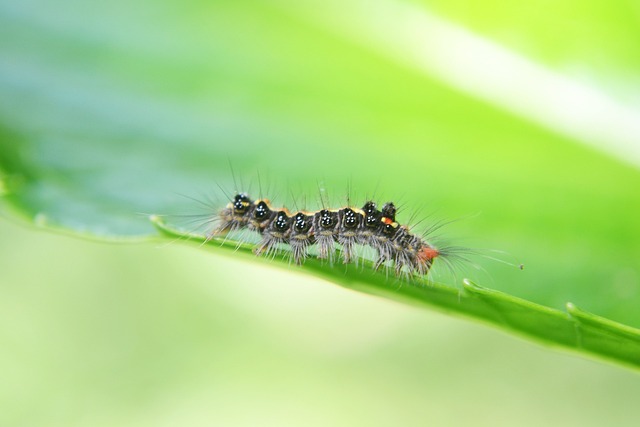
Selecting the Right Organic Pesticide for Your Garden
I’m going to be honest with you: not all pest problems are the same, and neither are the organic solutions. You can’t just pick any organic pesticide off the shelf and expect it to work miracles in your garden. That’s why it’s critical to choose the right one.
You’re going to find out about a few key factors to consider when selecting your organic pesticide. First, think about the specific pests you’re dealing with. Aphids, slugs, and caterpillars all require different tactics. A bit of research can save your veggies and a lot of headaches down the road.
Choose something that resonates with you and your garden’s needs. Some organic pesticides work best on contact, while others are ingested by pests. Consider whether you need a broad-spectrum solution or something targeted.
This isn’t just about killing pests; it’s also about ensuring your soil remains healthy. Your soil’s health is integral to plant health, and by extension, pest control. A strong, balanced soil can help resist pests naturally, which means less work for you.
Don’t worry too much about trial and error. You can always adjust your approach down the road. I encourage you to keep a garden journal to track what works and what doesn’t because even the most seasoned gardeners need to tweak their strategies over time.
If Your Having Trouble with Rabbits Then Click Here
DIY Organic Pesticide Recipes and Tips
I’m going to share with you some of my go-to recipes for homemade organic pesticides. These are concoctions I have personally tested and tweaked over years of gardening. You’re going to find out just how easy it is to make your own effective pest control solutions using ingredients you probably already have in your pantry or can easily obtain.
Let’s start with a simple yet powerful garlic and chili spray. Here’s what you’ll need: a couple of cloves of garlic, a few hot chili peppers, a tablespoon of vegetable oil, a teaspoon of liquid soap, and two cups of water. Blend the garlic and chili with the water, strain the mixture, and add the oil and soap. This can be sprayed directly onto the plants to deter a range of pests.
Another favorite is the neem oil solution. Neem oil, derived from the seeds of the neem tree, is renowned for its pest-repellent properties. To create the solution, mix two teaspoons of neem oil, one teaspoon of liquid soap, and a quart of water. Make sure to thoroughly combine them before spraying onto the affected plants.
When working with homemade pesticides, always label your mixtures, keep them out of reach of children and pets, and store them away from direct sunlight. It’s also essential to test any new pesticide on a small portion of your plants first to check for any adverse reactions.
As we move towards monitoring and managing your garden’s ecosystem, remember that prevention is better than cure. These organic pesticides should be a part of a broader, holistic approach to garden health, one that includes fostering beneficial insects and maintaining a balanced ecosystem.
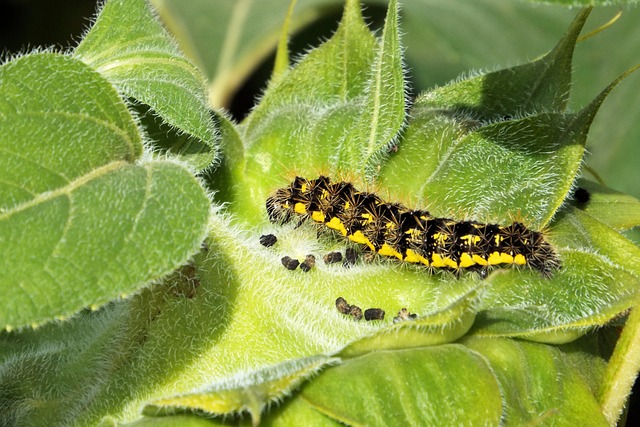
Monitoring and Managing Your Garden’s Ecosystem
Now, you’ve got your homemade organic pesticide ready and you might be eager to see those pests vanish. But before you declare war on garden invaders, it’s crucial to understand the role they play in your garden’s ecosystem. Yes, you heard that right – even pests have a role!
You’re going to find out about why observation is as important as intervention. I’ll walk you through keeping a keen lookout for the chain reactions that might follow your pesticide application. A diversity of insects can be a sign of a healthy garden, and sometimes, what you need isn’t less insects, but a better balance between pest and predator populations.
I’m here to help you with some firsthand strategies for observing and maintaining this balance, such as planting pest-deterring plants and creating habitats for beneficial insects. I’m talking about gardening with a holistic view, considering how each action affects the entire garden.
Determining the right time to act is also paramount. I use a simple rule: intervene when the health of your plants is at stake, not just because you’ve spotted a few bugs. And I’ve learned that the best defense is a good offense. By that, I mean fostering a vibrant, resilient garden ecosystem is your first line of defense against pest infestation.
You can expect to adapt your strategies as you learn and as your garden grows. Keep a garden diary to track what works and what doesn’t, and remember – you’re working with nature, not against it. Allow your garden to show you the way, and you might discover that you need less intervention than you think.
In the next section, we will contemplate the organic mindset as a whole. It’s not just about the immediate battle against pests; it’s also about the ongoing war for a healthier planet.
For More Info On Pesticides Check Out Wikipedia Here
Conclusion: Embracing the Organic Mindset
I’m going to wrap up our discussion by reiterating the immense value of adopting an organic mindset when tackling pests in your vegetable garden. It’s not just about eliminating unwanted critters; it’s also about fostering a healthier ecosystem for your plants to thrive.
Throughout this journey, you’ve learned that organic pesticide options can be just as effective as their chemical counterparts, with the added benefits of being safer for your family, your garden, and the planet. Remember, the choice you make in your garden can have a ripple effect on the larger environment.
Don’t worry too much about getting it perfect right from the start. Organic gardening is, after all, a process of continual learning and adaptation. You can always adjust your approach down the road as you gain more experience and observe the changes in your garden.
I really hope that you feel empowered to try out some of the methods we’ve talked about and that you’re excited to see the results. Organic gardening is a journey that gets more rewarding with time, as you discover the vibrant and resilient ecosystem you can cultivate right in your backyard.
If you want to delve even deeper into organic gardening and pesticide use, there’s a lot of opportunity in community forums, local workshops, and online courses. Choose something that resonates with you, and don’t hesitate to share your experiences. We’re all in this together, learning from each other along the way.
Thanks Mitch
Follow to stay up to date with new posts!
Our website contains affiliate links. This means if you click and make a purchase, we may receive a small commission. Don’t worry, there’s no extra cost to you. It’s a simple way you can support our mission to bring you quality Gardening Tips.
Last Updated on February 12, 2025 by Mitch
